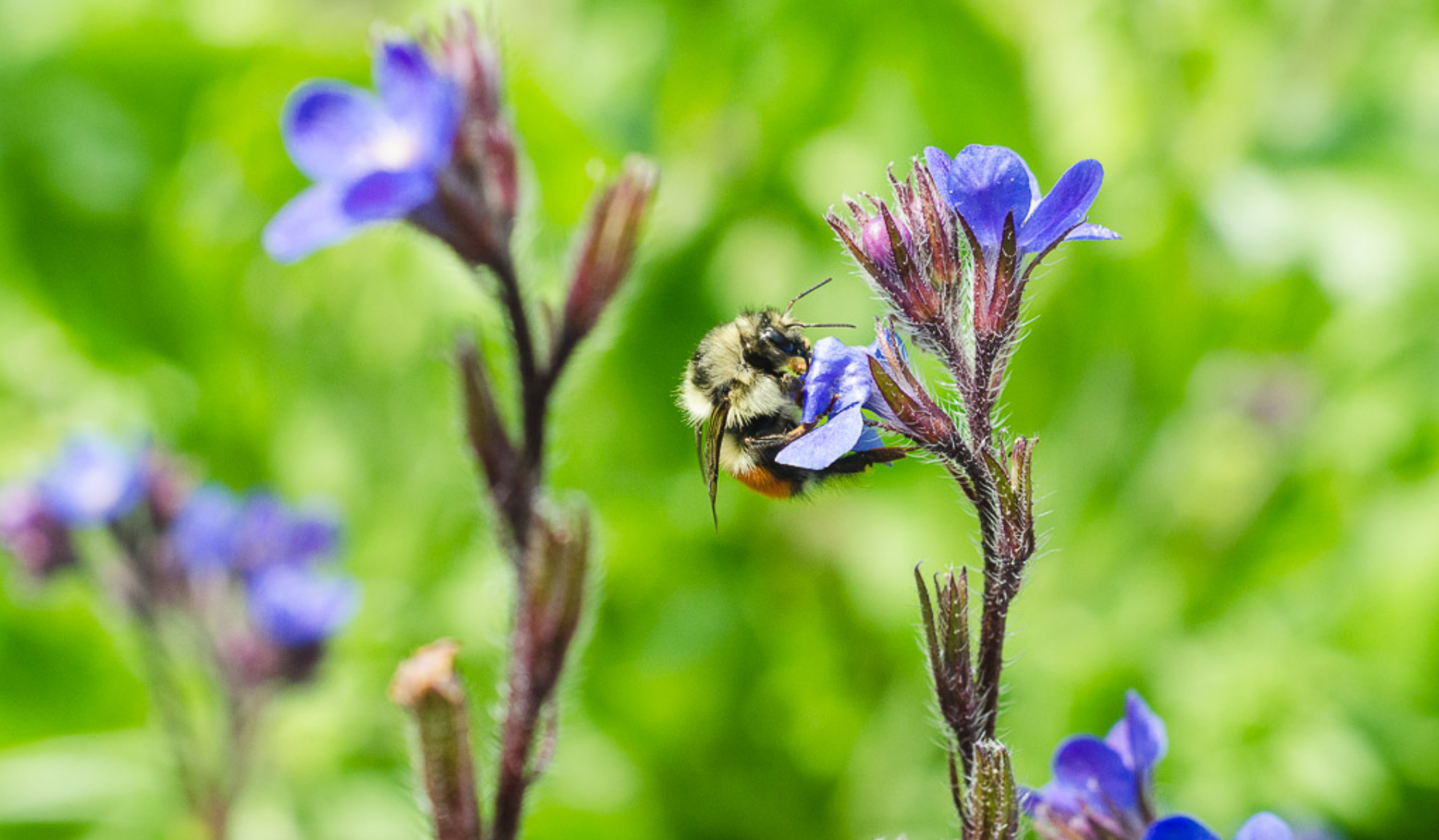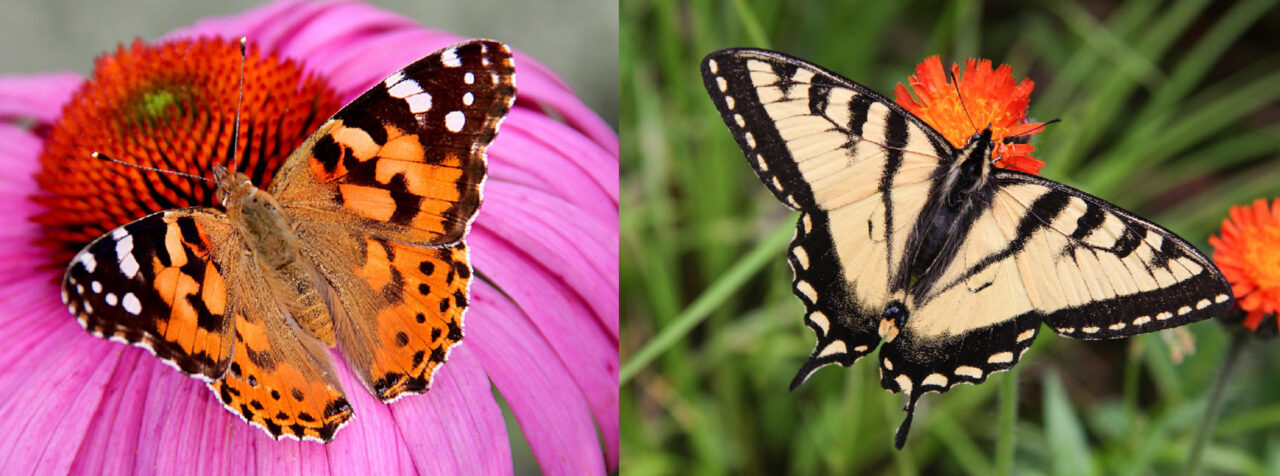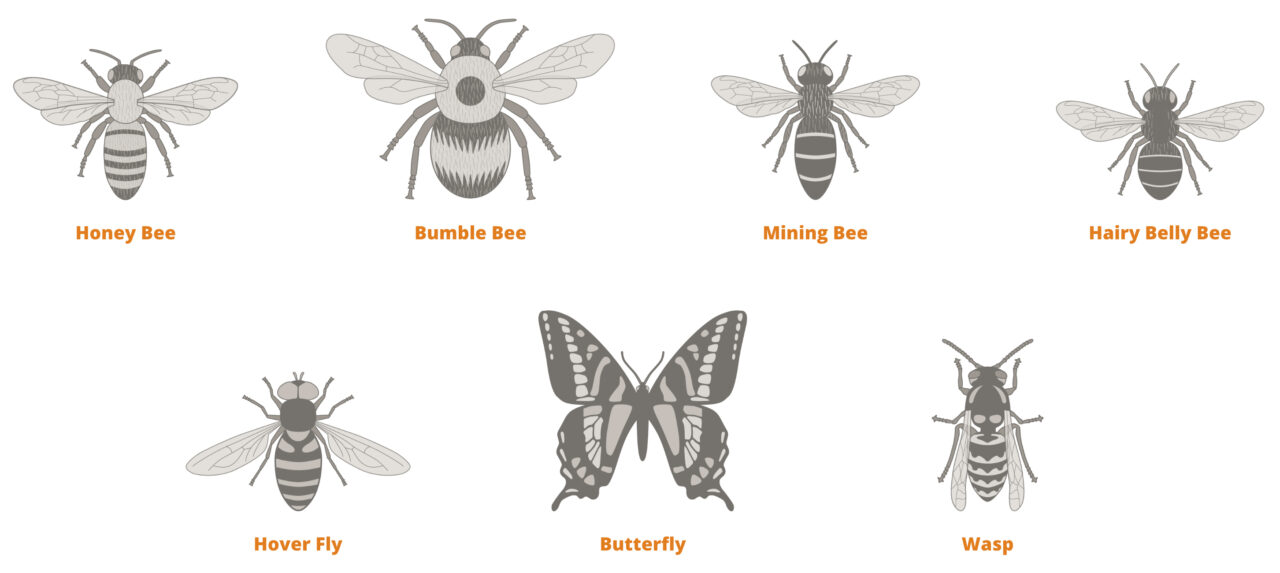People-Powered Research App Helps Scientists Keep Tabs on Pollinators

Posted on | Updated
The Insight Citizen Science app harnesses the power of public observation to propel research on pollinator populations.
Pollinators are on the decline worldwide, according to scientists, and the human cost of that population decline could be dire.
But while the future of pollinators may be uncertain, there’s one thing that’s clear: the need for better data on pollinators is more urgent than ever before. And data on population density and diversity across different environments is an essential part of this research.
With that in mind, ECU Professor Cameron Cartiere and alum Geoffrey Campbell (BDes ’16), in collaboration with the Pollinator Partnership, recently launched a new citizen science app that aims to get the public engaged in tracking pollinators in their neighbourhoods.
The Insight Citizen Science app teaches users how to identify seven common types of pollinators, from bees to wasps to butterflies. Over each five-minute observation, users record what types of pollinators they see, what type of flowering plant is being pollinated, and whereabouts their observation takes place. Their findings are gathered into an ever-growing database which feeds scientific research.
Users can follow their friends, other participants or scientists to track their observations over time. Best of all, the app is completely free for anyone living in Canada, Mexico or the United States. It can even be used without an internet connection; the app simply stores user input until the device connects to wifi.
A beautiful native pollinator identification e-book, produced by public art initiative and project partner Border Free Bees (BFB), is also available as another free learning resource.

Cameron, who co-leads the Border Free Bees initiative (with Associate Professor Nancy Holmes at UBCO), recognized the need for an app that would improve citizen science efforts working with native pollinators. Geoff was working as a research assistant for BFB and took on the design challenge. He used this opportunity to develop the concept and app design as his undergraduate thesis project at Emily Carr University. Along with the Border Free Bees team, Geoff workshopped the design with community organizations, focus groups, educational seminars and app testing sessions. Following graduation, he was able to continue to develop the app with BFB and the Pollinator Partnership.
Scientists and community experts, including SFU professor Elizabeth Elle and Lora Morandin, Western Canada Program Director and Senior Pollinator Specialist at the Pollinator Partnership, also played a key role in informing and validating the scientific aspects of the design.
Cameron notes that “Our app and pollinator ID booklet really help people see bees differently. For many people, the idea of a bee equals a honey bee. They have no idea that there are over 800 species of bees in Canada and over 450 of those species can be found in BC and only one of those is the honey bee. We have worked with so many people in our outreach projects, and children and adults alike marvel at the fact that there are green bees and wasps and some are so tiny they fit on the head of a pin. We hear back all the time that people are looking at their green spaces differently after using the app or the ID book.”
Other partner organizations include Emily Carr University, the University of British Columbia, the Pollination Ecology Lab at Simon Fraser University, the Pollinator Partnership, Environmental Youth Alliance and the North American Pollinator Protection Campaign.
The project was the grateful recipient of a grant from the Social Sciences and Humanities Research Council of Canada.
